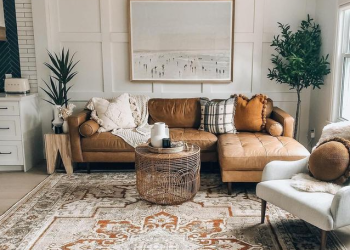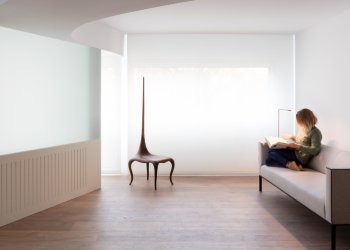Introduction to Temperature Control in the Bedroom
Maintaining the right temperature in your bedroom is crucial for achieving quality sleep. Whether it’s the sweltering heat of summer or the chill of winter, finding the optimal temperature can significantly impact your sleep comfort and overall well-being.
Understanding Ideal Bedroom Temperatures
Experts generally recommend keeping your bedroom temperature between 60 and 67 degrees Fahrenheit (15.6 to 19.4 degrees Celsius) for optimal sleep comfort. However, individual preferences may vary, so it’s essential to find the temperature range that works best for you.
Heating Solutions for Winter
During the colder months, it’s essential to keep your bedroom warm and cozy for a restful night’s sleep. Consider investing in a central heating system, electric space heaters, or heated blankets to maintain a comfortable temperature without cranking up the thermostat and driving up energy costs.
Cooling Solutions for Summer
When temperatures soar in the summer, keeping your bedroom cool is essential for sleeping comfortably. Use air conditioning, fans, or dehumidifiers to lower the temperature and create a refreshing sleep environment. Additionally, keeping blinds or curtains closed during the day can help block out heat from the sun.
Bedding and Linens for Temperature Regulation
Choosing the right bedding and linens can make a significant difference in regulating your body temperature while you sleep. Opt for breathable fabrics like cotton or bamboo that wick away moisture and keep you cool in the summer, while also providing warmth and insulation in the winter.
Window Treatments and Insulation
Windows can be a significant source of heat loss or gain in the bedroom, depending on the season. Invest in curtains, blinds, or shades with insulating properties to help regulate temperature and block out unwanted light. During the summer, consider using reflective or blackout curtains to keep out the heat, while thermal curtains can help retain heat during the winter.
Smart Technology for Temperature Control
Smart thermostats and climate control systems offer convenient ways to regulate temperature in the bedroom. With programmable settings and remote access capabilities, you can set the perfect temperature for sleeping and adjust it from anywhere using your smartphone or tablet.
Natural Solutions for Temperature Regulation
In addition to mechanical heating and cooling systems, there are natural ways to regulate temperature in the bedroom. Open windows to allow fresh air to circulate, and consider incorporating houseplants like aloe vera or snake plants, which can help purify the air and regulate humidity levels.
Personal Preferences and Adjustments
Finding the right temperature for sleep comfort is a highly personal matter. Experiment with different temperature settings and adjustments until you find what works best for you. If you share your bedroom with a partner with different temperature preferences, consider using separate bedding or adjusting room temperature in zones to accommodate both of your needs.
Bedroom Layout and Furniture Placement
The layout of your bedroom and the placement of furniture can affect temperature distribution throughout the space. Arrange furniture to allow for optimal airflow and circulation, and avoid blocking vents or air registers with bulky furniture pieces.
Humidity Control for Sleep Quality
Humidity levels can also impact your sleep quality and comfort. Use a humidifier in the winter to add moisture to the air and prevent dryness, and a dehumidifier in the summer to reduce humidity levels and prevent mold and mildew growth.
Insulation and Sealing Drafts
Proper insulation is essential for maintaining consistent temperatures and preventing heat loss or gain in the bedroom. Inspect doors, windows, and walls for drafts or air leaks, and seal them with weatherstripping or caulking to improve energy efficiency and comfort.
Routine Maintenance and Checkups
Regular maintenance of your heating, ventilation, and air conditioning (HVAC) system is essential for optimal performance and energy efficiency. Schedule annual tune-ups and inspections to ensure your HVAC system is running smoothly and address any issues promptly to prevent disruptions to your sleep comfort.
Sleep Hygiene and Temperature
Creating a comfortable sleep environment is an essential aspect of good sleep hygiene. By optimizing temperature control in your bedroom, you can create a conducive environment for restful sleep and wake up feeling refreshed and rejuvenated.
Conclusion
Temperature control is a critical factor in creating a comfortable sleep environment year-round. By understanding ideal temperature ranges, implementing heating and cooling solutions, choosing the right bedding and linens, and incorporating natural and technological strategies, you can ensure optimal sleep comfort and quality.

FAQs After The Conclusion
1. How can I tell if my bedroom temperature is too hot or too cold for sleep?
Pay attention to how you feel when you wake up in the morning. If you’re sweating or shivering, it’s a sign that your bedroom temperature may be too extreme for comfortable sleep.
2. Is it better to sleep in a colder or warmer room?
Most people find it easier to fall asleep and stay asleep in a slightly cooler room, as lower temperatures can promote relaxation and signal to the body that it’s time to rest.
3. Can temperature control in the bedroom affect my energy bills?
Yes, maintaining optimal temperature control in your bedroom can impact your energy bills, especially if you rely heavily on heating or cooling systems. Using energy-efficient appliances and implementing temperature-saving strategies can help reduce costs.
4. What should I do if I wake up feeling too hot or too cold during the night?
Adjust the temperature settings in your bedroom or make changes to your bedding and clothing to achieve a more comfortable sleep environment. Experiment with different temperature settings and adjustments until you find what works best for you.
5. Are there any health benefits to sleeping in a cooler room?
Sleeping in a cooler room has been associated with various health benefits, including improved sleep quality, better circulation, and enhanced metabolism.
6. Can sleeping in a hot room affect my sleep quality?
Yes, sleeping in a hot room can disrupt your sleep quality by causing discomfort, restlessness, and increased awakenings throughout the night.
7. What should I do if my partner prefers a different temperature than me?
Consider using separate bedding or adjusting room temperature in zones to accommodate both of your temperature preferences. Additionally, compromise on a temperature setting that falls within a comfortable range for both of you.
8. How can I tell if my bedroom is too humid or too dry for sleep?
Signs of excessive humidity include condensation on windows, musty odors, and mold growth, while signs of dry air include dry skin, chapped lips, and static electricity. Use a hygrometer to measure humidity levels and adjust as needed.

















